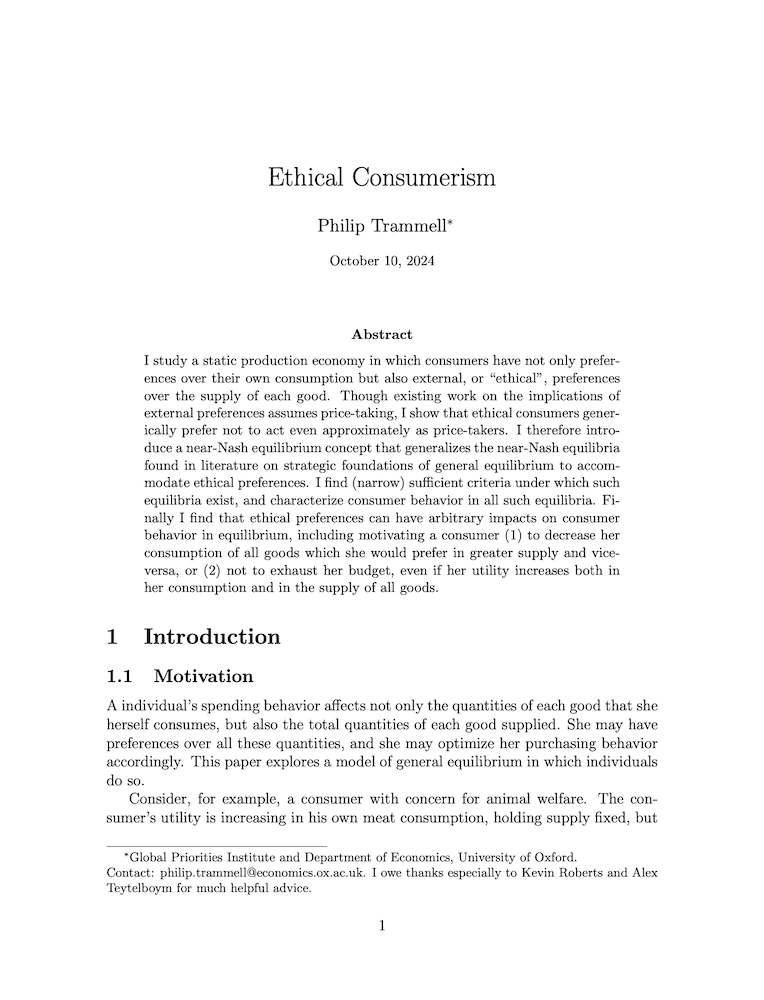Ethical Consumerism
Philip Trammell (Global Priorities Institute and Economics Department, University of Oxford)
GPI Working Paper No. 22-2024
I study a static production economy in which consumers have not only preferences over their own consumption but also external, or “ethical”, preferences over the supply of each good. Though existing work on the implications of external preferences assumes price-taking, I show that ethical consumers generically prefer not to act even approximately as price-takers. I therefore introduce a near-Nash equilibrium concept that generalizes the near-Nash equilibria found in literature on strategic foundations of general equilibrium to accommodate ethical preferences. I find (narrow) sufficient criteria under which such equilibria exist, and characterize consumer behavior in all such equilibria. Finally I find that ethical preferences can have arbitrary impacts on consumer behavior in equilibrium, including motivating a consumer (1) to decrease her consumption of all goods which she would prefer in greater supply and vice-versa, or (2) not to exhaust her budget, even if her utility increases both in her consumption and in the supply of all goods.
Other working papers
The case for strong longtermism – Hilary Greaves and William MacAskill (Global Priorities Institute, University of Oxford)
A striking fact about the history of civilisation is just how early we are in it. There are 5000 years of recorded history behind us, but how many years are still to come? If we merely last as long as the typical mammalian species…
The structure of critical sets – Walter Bossert (University of Montreal), Susumu Cato (University of Tokyo) and Kohei Kamaga (Sophia University)
The purpose of this paper is to address some ambiguities and misunderstandings that appear in previous studies of population ethics. In particular, we examine the structure of intervals that are employed in assessing the value of adding people to an existing population. Our focus is on critical-band utilitarianism and critical-range utilitarianism, which are commonly-used population theories that employ intervals, and we show that some previously assumed equivalences are not true in general. The possible discrepancies can be…
It Only Takes One: The Psychology of Unilateral Decisions – Joshua Lewis (New York University) et al.
Sometimes, one decision can guarantee that a risky event will happen. For instance, it only took one team of researchers to synthesize and publish the horsepox genome, thus imposing its publication even though other researchers might have refrained for biosecurity reasons. We examine cases where everybody who can impose a given event has the same goal but different information about whether the event furthers that goal. …

